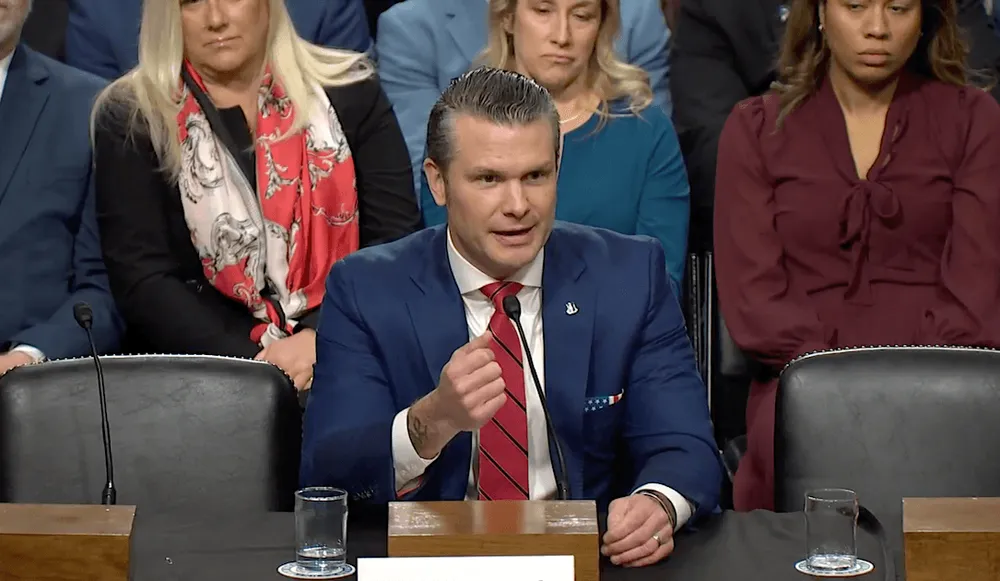Hegseth says debate over Cyber Command, NSA leadership would reach ‘conclusion’
President-elect Donald Trump’s nominee for Defense secretary vowed that he would end the “debate” on the policy of having one military official at the head of both the nation’s largest spy agency and top cyber digital warfighting command.
In response to advance policy questions — a questionnaire senators pose to nominees for high-level positions before their confirmation hearings — Pete Hegseth noted the so-called dual-hat relationship between U.S. Cyber Command and the National Security Agency “has been debated for many years.”
The former Fox News Channel commentator summarized some of the chief arguments for and against having a military officer helm both entities. Backers contend the arrangement boosts efficiency, while opponents believe the roles are too big for one person to carry out effectively and that a civilian NSA chief would help both organizations.
“If confirmed as Secretary of Defense, I will bring these debates to conclusion, consult with Congress, and make [a] final recommendation for the way ahead,” he wrote.
Recorded Future News reported last month that advisers within Trump's transition effort are pushing to cleave the Cyber Command/NSA, following a failed 11th-hour attempt during his first administration.
The 75-page questionnaire is the most detailed insight into Hegseth’s thinking on the Pentagon’s cyber operations to date. His opening statement at his confirmation hearing on Tuesday included no mentions of the topic and most of the session was devoted to his past inflammatory statements about women serving in combat roles and allegations of sexual assault.
In addition to asking about DOD digital operations and Cyber Command’s Cyber Mission Force, lawmakers also inquired if the breach of U.S. telecommunications firms by the China-linked hacking group known as Salt Typhoon constitutes an “act of war.”
Hegseth said he “would work with the national command authority about whether a specific cyberattack by a foreign entity constituted an act of war.”
If a cyberattack on the U.S. caused “significant physical damage, disrupted critical national infrastructure, targeted the civilian population or was carried out with the clear intention to inflict substantial harm on a nation’s economic or military capabilities, there would be a strong argument that such an attack could be viewed as an act of war.”
The Senate Armed Services Committee also asked for Hegseth’s takeaways on the intrusion and the breach into U.S. critical infrastructure by another Chinese actor, Volt Typhoon.
Hegseth replied that he is “aware of the nature” of both attacks and that the actions tied to Beijing are “certainly a national security concern and would suggest that U.S. networks currently lack sufficient safeguards.”
The U.S. should “possess the ability to protect its critical networks from malicious intrusion. If confirmed, I will work with the Interagency partners to determine how best to provide that protection,” he wrote.
Martin Matishak
is the senior cybersecurity reporter for The Record. Prior to joining Recorded Future News in 2021, he spent more than five years at Politico, where he covered digital and national security developments across Capitol Hill, the Pentagon and the U.S. intelligence community. He previously was a reporter at The Hill, National Journal Group and Inside Washington Publishers.



